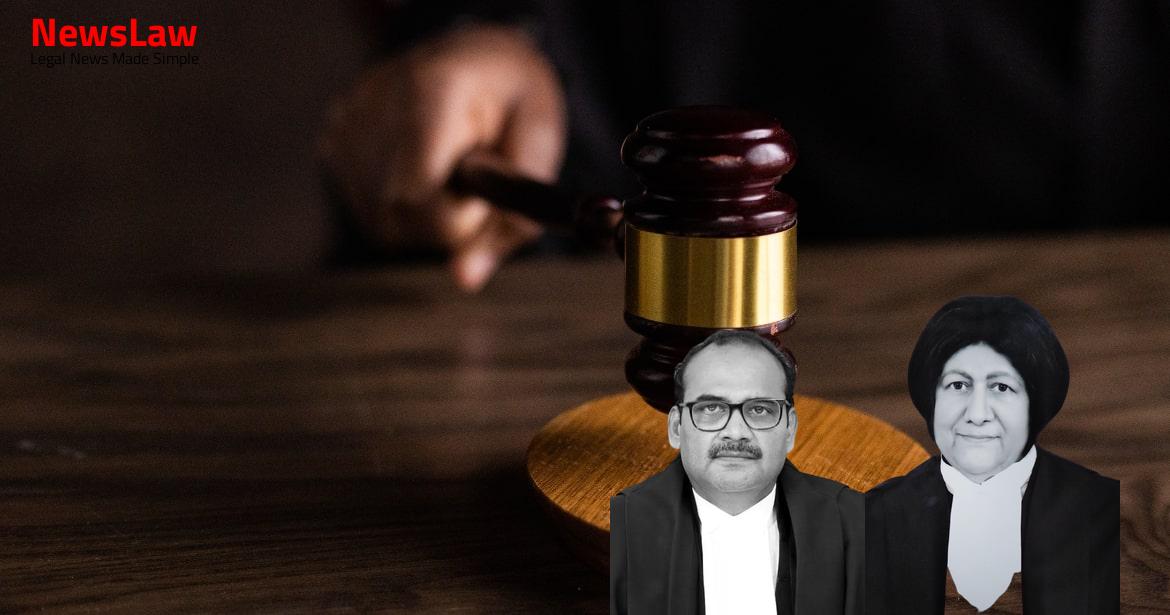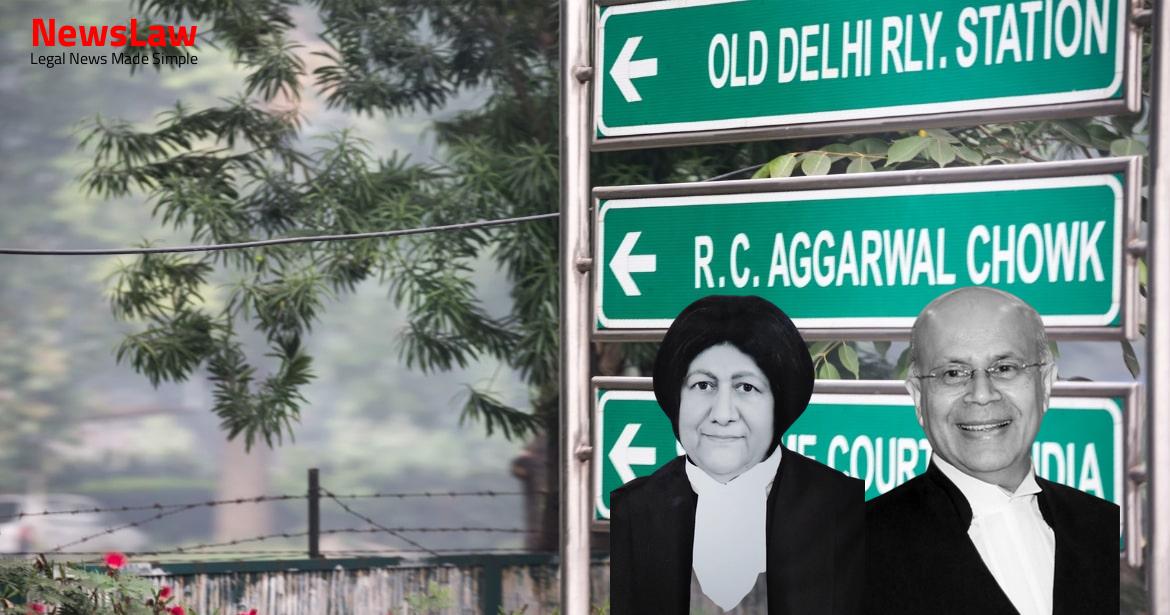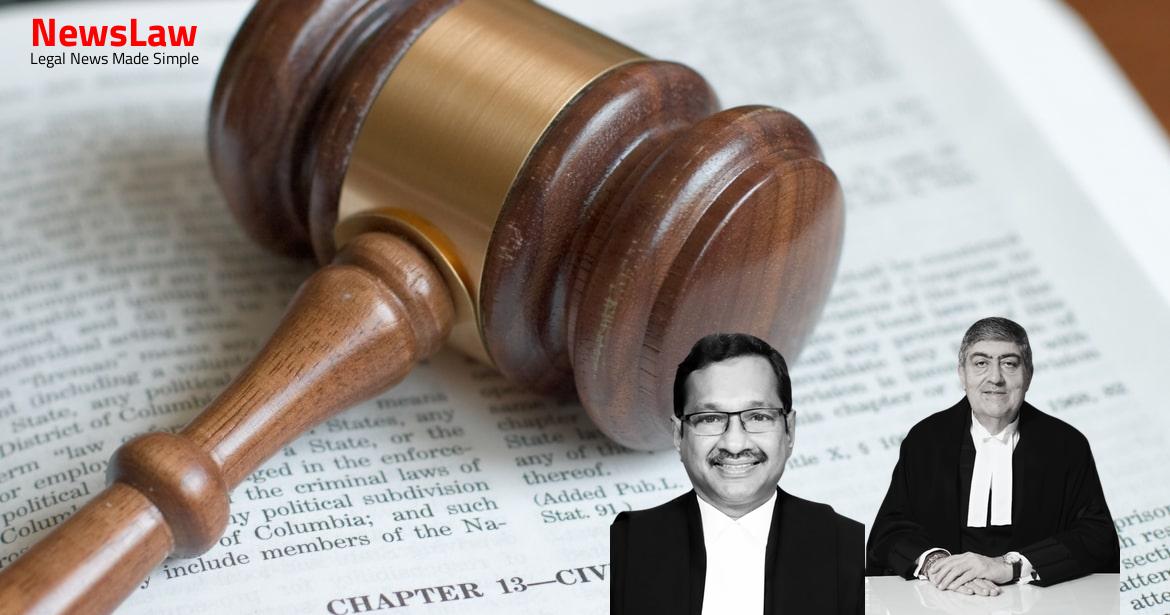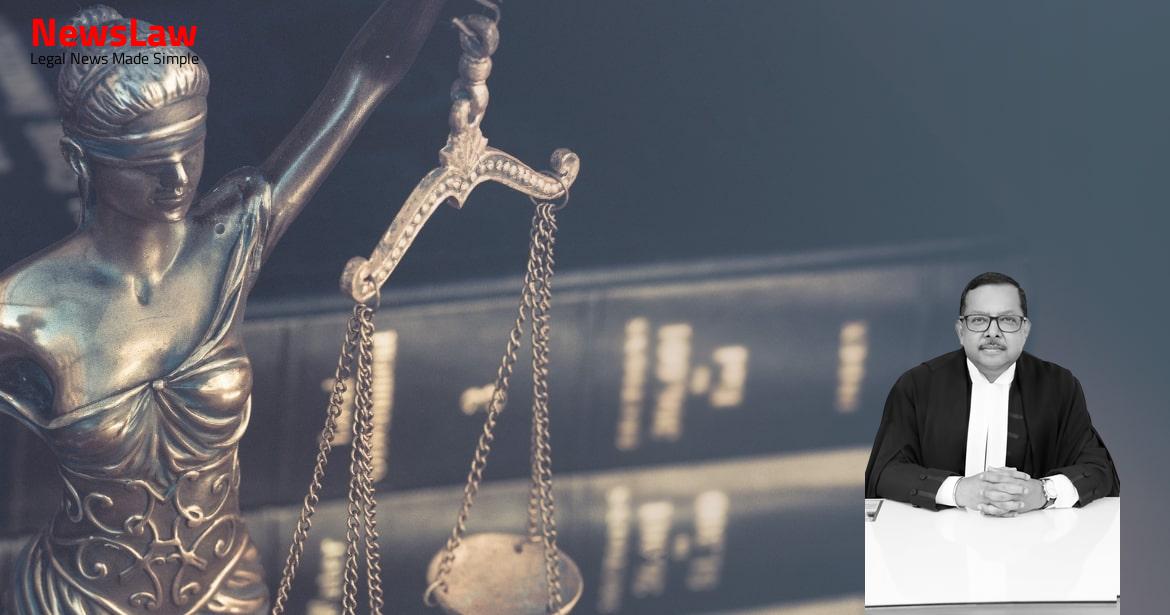In a recent case, the High Court scrutinized criminal proceedings pertaining to short payment of road tax. The Court’s analysis highlighted the importance of establishing a prima facie case against individuals before summoning them. The decision emphasized the necessity of concrete evidence and specific roles attributed to the accused in alleged offenses. Additionally, the judgment underscored the significance of legal reasoning in dismissing criminal proceedings lacking substantive material and evidentiary support.
Facts
- The Bengaluru Bench of the High Court of Karnataka allowed a Writ Petition/Criminal Revisional Petition filed by S.V. Nandaraju and others, quashing proceedings initiated against them in the same case as the present one.
- The events in the present case occurred between 2003 and 2006.
- The High Court extended an interim order from time to time in this matter.
- Complainant claims that there was a huge scam involving the misquoting and collection of prices for Bentley and Ferrari cars by vehicle dealers, middlemen, smugglers, and car owners in Mangalore.
- Owners of imported vehicles were asked to pay the differential tax, which was paid by them.
- Manufacturing rate of a basic model Bentley car is stated to be 1.16 crores, and the top-end model could range beyond 6 crores.
- Various criminal revisional petitions were filed and allowed by the Karnataka High Court, leading to the quashing of proceedings against the petitioners.
- Allegations of collusion and conspiracy between RTOs in Karnataka for undercharging road tax on imported cars like Bentleys and Ferraris were made, leading to legal actions.
- A private complaint alleging forgery and fraudulent registration of vehicles was referred to the Lokayuktha Police, resulting in the registration of FIRs and criminal cases.
- Petitioner in Criminal Petition No.344 of 2017 produced a receipt acknowledging payment of a demanded sum, despite not being the owner of the vehicle in question.
- State Government declined to sanction prosecution against some employees involved in the case, citing section 21 of the Taxation Act protecting officers acting in good faith.
- Investigations into the alleged smuggling operation involving high-end cars like Bentleys and Astoria Martins were mentioned, with reports of vehicles being abandoned on the streets to avoid arrest.
- Complainant emphasized the need for a comprehensive investigation by an independent agency to uncover the fraud and abetments related to vehicle registrations and tax evasion.
Also Read: Court’s Jurisdiction in Re-appraising Arbitrator’s Findings
Arguments
- The Appellant, Chairman and Managing Director of M/s. MSPL Limited, is accused of short payment of road tax in connection with a vehicle purchased by the company.
- The Appellant questions the legality of the proceedings against him, stating that the alleged deficit road tax was promptly paid by the company after receiving the demand notice.
- The company, M/s. MSPL Limited, had paid the entire tax amount, as evidenced by a ‘no dues certificate’ issued by the RTO.
- There is no evidence of the Appellant abetting any offense or submitting fake documents in relation to the imported vehicle.
- The Appellant has not challenged the initiation of criminal proceedings against other accused persons.
- The Appellant did not aim to obstruct any investigations related to smuggling, forging documents, or engaging in illegal activities.
- Neither the Appellant nor the company gained any financial benefits, and there is no evidence of the Appellant conspiring with any road transport officials.
- The Appellant maintains that he has never been involved in any criminal offenses previously.
- The company paid the road tax amount based on the value of the vehicle as per the invoice, as determined by the Motor Vehicle Authorities.
- Mr. Padhi argued against quashing the proceedings.
- Mr. Rohatgi contended that the Company paid full road tax based on actual invoice value.
- Mr. Padhi tried to differentiate the judgments of S.V. Nandaraju, S. Rajendran, and K.J. Kuruvilla.
- Mr. Padhi noted that in cases where quashing was allowed, deficit tax was realized before the complaint was registered.
- The timing of demand notice issuance and tax realization before the complaint is seen as inconsequential.
- The charges must either show defrauding the State of revenue or not establish the offense.
- No additional amount was due.
Also Read: Contrary Directions in Issuance of Letter of Intent
Analysis
- The High Court did not consider the contentions raised by the Appellants.
- The company did not dispute a notice of demand for Rs. 21 lakh due to its small amount compared to its turnover.
- The allegations in the FIR and chargesheet only point to short payment of road tax.
- The proceedings against the Appellant were quashed as there were no materials and the sanction to prosecute under the P.C. Act was declined.
- Appellants were officers of the Motor Vehicles Department, some retired before the complaint was made.
- No specific role of the Appellant in the alleged offense of cheating was mentioned in the chargesheet.
- Summoning an accused is a serious matter and cannot be done without proper consideration.
- The Appellant, as Chairman and Managing Director, was not directly involved in the day-to-day affairs of the company in question.
- Allegations of collusion and conspiracy against the Appellant lack material particulars and are unsupported by evidence.
- Chargesheet against the Appellant is deemed arbitrary, harassive, and lacking in evidentiary support.
- Before issuing summons to a company official, the Magistrate must be satisfied of a prima facie case against the individual in their personal capacity.
- Specific role attributed to the individual in relation to the alleged offence is necessary for initiating criminal proceedings against them.
- Short payment of tax alone is not a criminal offense.
- High Courts may use their jurisdiction under Section 482 of Cr.P.C. if FIR allegations do not establish an offense.
- Superior Courts will not support harassment in criminal proceedings when FIR or investigation evidence lacks the elements of an offense.
- The judgment in S.V. Nandaraju and others (supra) is not applicable to the current case.
- In G. Sagar Suri & Another v. State of U.P., a Director’s liability in a Section 420 IPC case was adjudicated by the Court.
- In Joseph Salvaraj A. v. State of Gujarat and Others, the Court ruled that even after a chargesheet is filed, the Magistrate can assess if the offenses alleged are prima facie made out from the complainant’s FIR, chargesheet, documents, etc.
- The proceedings against the Appellant are misconceived
- The proceedings are harassive and an abuse of process of law
- The initiation of proceedings lacks proper application of mind
Also Read: Application for Stay in Civil Suit Rejected: Court’s Legal Analysis
Decision
- The appeal has been allowed.
- Proceedings against the Appellants in the Court below are stayed.
Case Title: NARENDRA KUMAR A. BALDOTA Vs. THE STATE OF KARNATAKA (2022 INSC 301)
Case Number: Crl.A. No.-000429-000429 / 2022



